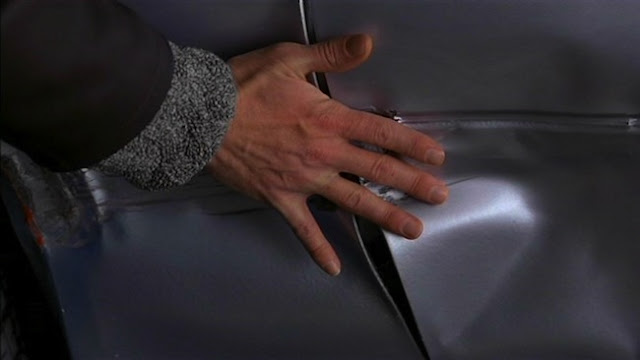Film Life
ONE OF THE BEST LESSER-KNOWN European writers in translation, Cees Nooteboom excels at conveying a thoughtful, urbane European sensibility. The 68-year-old Dutchman's 1998 "All Souls Day," newly translated by Susan Massotty, boasts an even cleaner version of his plaintive prose than in earlier novels like "Rituals" and "The Following Story."
In "All Souls Day," Daane is a Dutch documentary maker who has lived in Berlin since the death of his wife and child in an airplane crash a decade earlier. Nooteboom demonstrates his usual alacrity in divining interior states, in a fashion similar to Peter Handke in books like "The Afternoon of a Writer," but Nooteboom is less self-serious. While Handke would pause to fashion falling light in language, Nooteboom's thinkers continue their forward progress, even when they find it absurd.
Novels about filmmakers' processes rarely convince. They're more about externals than internals. (Even Don DeLillo in "The Names" gets precious instead of precise, seeking metaphor more than capturing thought.) Daane sees himself as "a man with machines, free but tied down... a traveler without a suitcase." He is a consummate contemporary cosmopolitan, thoughtful yet unmoored. In tender yet astringent prose, Nooteboom chronicles the workings of Daane's mind as "he wondered how much of his real self was visible to others." It may be my favorite of his eight novels that have been translated, a book that feels like the world instead of a construct of it. Daane considers making a new film from the fragments of life he encounters on his walks through the newly unified Berlin. Can these fragments cohere? Nooteboom cites another writer on "the immense aphasia of life," and it is a state at which he excels at depicting. Daane meets a young Dutch-Spanish woman and things take shape: abstraction recedes and the power of the chance encounter sweeps his old life away.
Poetic yet philosophical in the best possible way, "All Souls Day" is a heartening consideration of the fate of the reflective intellectual in any century. It is as lovely, as offhand as photos.
"All Souls Day" by Cees Nooteboom Harcourt, $25, 340 pages
[Newcity, 10 January 2002]
In "All Souls Day," Daane is a Dutch documentary maker who has lived in Berlin since the death of his wife and child in an airplane crash a decade earlier. Nooteboom demonstrates his usual alacrity in divining interior states, in a fashion similar to Peter Handke in books like "The Afternoon of a Writer," but Nooteboom is less self-serious. While Handke would pause to fashion falling light in language, Nooteboom's thinkers continue their forward progress, even when they find it absurd.
Novels about filmmakers' processes rarely convince. They're more about externals than internals. (Even Don DeLillo in "The Names" gets precious instead of precise, seeking metaphor more than capturing thought.) Daane sees himself as "a man with machines, free but tied down... a traveler without a suitcase." He is a consummate contemporary cosmopolitan, thoughtful yet unmoored. In tender yet astringent prose, Nooteboom chronicles the workings of Daane's mind as "he wondered how much of his real self was visible to others." It may be my favorite of his eight novels that have been translated, a book that feels like the world instead of a construct of it. Daane considers making a new film from the fragments of life he encounters on his walks through the newly unified Berlin. Can these fragments cohere? Nooteboom cites another writer on "the immense aphasia of life," and it is a state at which he excels at depicting. Daane meets a young Dutch-Spanish woman and things take shape: abstraction recedes and the power of the chance encounter sweeps his old life away.
Poetic yet philosophical in the best possible way, "All Souls Day" is a heartening consideration of the fate of the reflective intellectual in any century. It is as lovely, as offhand as photos.
"All Souls Day" by Cees Nooteboom Harcourt, $25, 340 pages
[Newcity, 10 January 2002]
